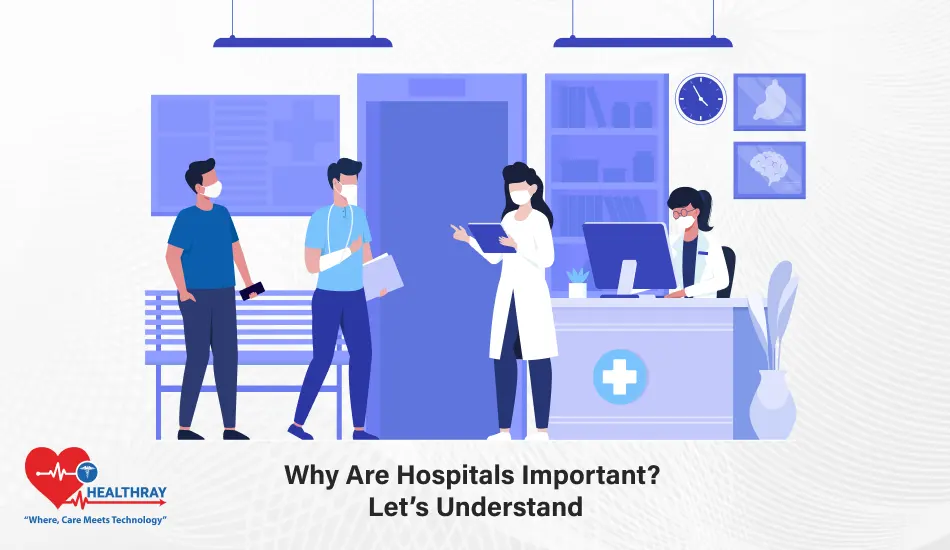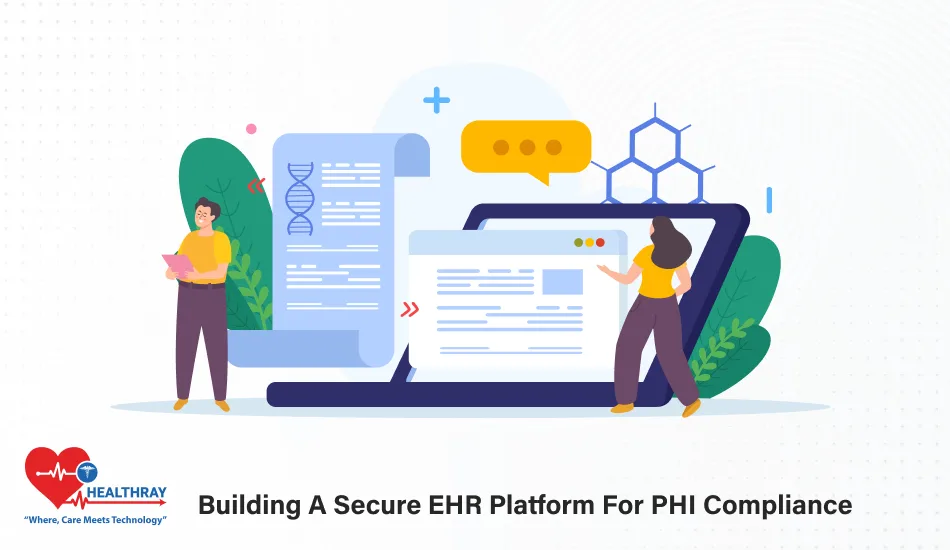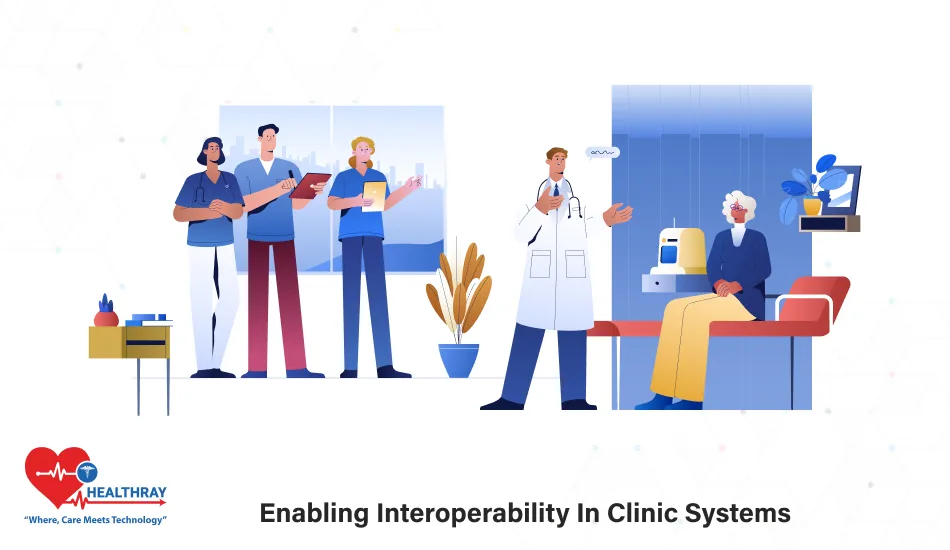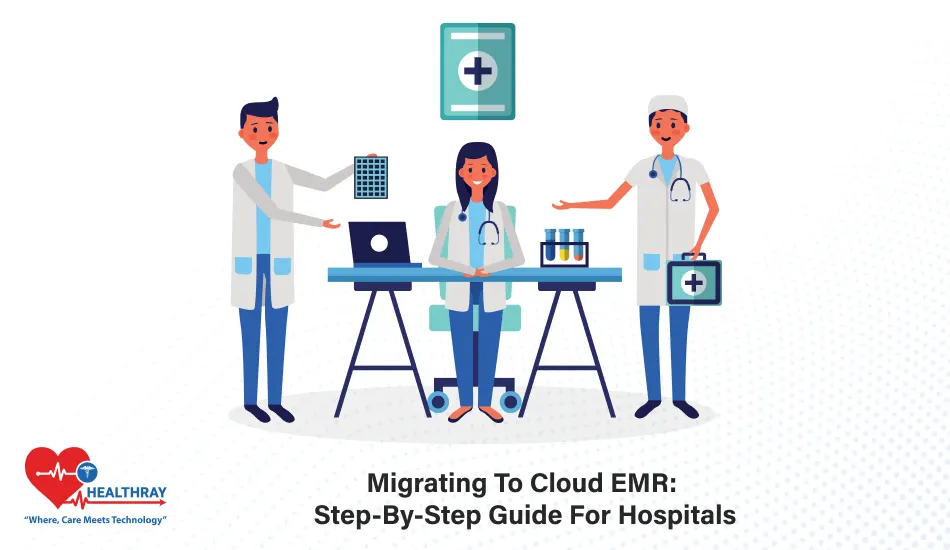Quick Summary: Hospitals form an important part in healthcare delivery and serve as centers of essential treatment and care. Such a unit, including healthcare personnel in its emergency room, intensive care, operation theatre, and outpatient department, all work in coordination for the treatment of diseases, saving of lives, and sustaining general health. Other than offering these emergency services, hospitals also contribute a great deal to promoting medical research, enhancing the care of their patients, and accepting changing needs on behalf of their community with regard to healthcare. Hospitals take a holistic approach toward patient care by treating various ailments and providing for the basic needs of those in need.
Introduction
These are some of the reasons why hospitals make up the centerpiece of health systems around the world and, therefore, are so vitally important in our societies. They offer ambulatory services, specialized units, acute interventions among other things, enabling us to diagnose or treat diseases or injuries should they happen. Some facilities turn critical in disaster response because they function as lifelines at such times, ensuring that patients get to see experienced doctors right away or receive immediate life-saving surgical operations. This, therefore, makes hospitals indispensable in the treatment of disasters or unexpected occurrences in medicine that may arise.
They are significant, not just for reasons of personal health, but also of public health and healthcare systems. They engage in pioneering research, actively fight against diseases, and foster new medical technologies that play a significant role in the constant improvement of world health.
In the future, hospitals are going to be much more important. Due to ageing populations and technological breakthroughs, changing in light of the evolving healthcare delivery landscape, they will have to adjust. Due to this evolution, they will remain at the forefront of health care and will adapt to the changed environment, perpetuating the principles of health and wellbeing.
There are several healthcare organizations that are completely dependent on the new modern healthcare system, which promotes unparalleled accuracy and enhances healthcare facilities. Besides, they extend great care to the patients and increase physician efficiency. It increases their productivity at work, improves the patient satisfaction rate, increases the engagement score, and proves to be effective in the case of specialized or emergency care.
Realizing the importance of hospitals means appreciating their manifold contributions to public health, personal health, and the continued growth of medical science. Understanding the characteristics of developing hospital management software is also important.
What is a Hospital?
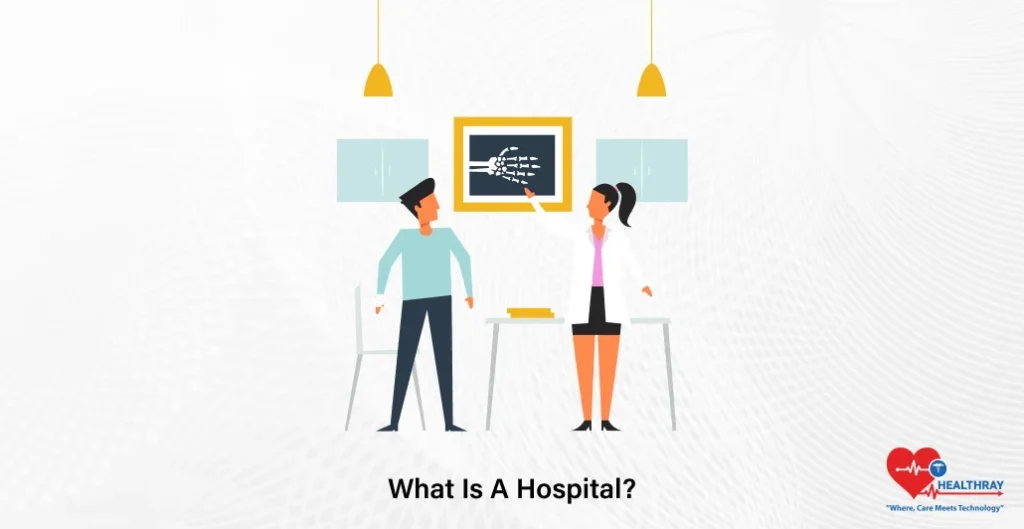
A hospital is an essential healthcare facility that provides patients in need with specialized medical care, nursing care, and all types of necessary medical supplies. Among all types, the general hospital is the most common and is usually equipped with an emergency room through which any type of medical emergency or accident can be handled. Surgical sections are set up in these general hospitals to handle urgent patients and to deal with a wide variety of medical services.
District hospitals are necessary as the central medical facility within specific regions. They provide facilities to accommodate patients that require extended acute care, along with critical care beds. A little on the outskirts are specialty hospitals, which were developed to specialize in particular medical conditions, like trauma centers, paediatric hospitals, rehabilitation hospitals, and elderly care hospitals. Each specialty facility delivers services relative to their specialty. Are you curious to see what services do hospitals provide? Keep reading.
The other key component of the healthcare system involves psychiatric treatment, a specialty medical service to address mental health problems. Depending on the source of their income, hospitals may be categorized as general, specialized, or federal government-run institutions. Some hospitals, known as teaching hospitals, also offer education in the fields of nursing and medicine to students in these areas.
Besides hospitals, clinics are remarkable medical institutions that hold an important place in providing healthcare service delivery. Some of the departments and specialized units which constitute these clinics may include pathology, radiography, and pharmacy. Other hospitals have separate centers for outpatient and chronic care services to meet the diverse health needs in the population, thus showing a broad diversity in the services and support units.
What other facilities would you like to provide in a hospital? Still, there are many software facilities that are lacking and fulfilled by healthcare software.
What Departments Do Modern Hospitals Have?
Modern hospitals are complex organizations comprising several departments, each serving a different function in providing comprehensive healthcare services. It is important to consider the roles of these key departments in understanding the significance of hospitals:
Emergency Department (ED): This is the department where patients with life-threatening diseases, injuries, or unexpected injuries are taken care of.
OPD-Outpatient Department: Provides consultations and treatments for non-emergency patients without the need for hospitalization.
Provide excellent services to the patients because of offering digital healthcare systems. Helping you with a number of services starting from appointment management, report generation, creates analytical dashboard for decision making process, and reduces errors at the time of registering a patient or healthcare information.
Intensive Care Unit (ICU): It is a critical care unit used for patients in life-threatening conditions or those recovering from surgery.
Operating Room (OR): This is the room where surgeries are performed; it contains special equipment and is maintained as clean.
Laboratory: This is the department where tests are run; specimens are examined to assist in disease diagnosis.
Radiology: The use of all imaging techniques for diagnosis, such as MRIs or X-rays, among others. Reservation of all your radiology images under the effective HMS system software is an emerging healthcare technology.
Thus, it helps save costs and minimizes the effort of employees. Overall, radiology centres will improve, which contributes to enhancing their service quality.
Pharmacy: This department distributes drugs that doctors have prescribed.
Maternity Ward: It is a prenatal care and birthing unit intended for expectant mothers. Arranges all ward facilities and assigns staff members based on their role. It happens with the help of hospital management systems.
Paediatrics: A service focusing on the medical needs from infancy to teenage years
Specialty departments are those, which concentrate on particular medical specialties. Examples include dermatology, urology, nephrology, and many others.
The expected shift into the healthcare industry is the hospital information management system. It will take care of all the infants and get advice from physicians while you are working at home. Moreover, the hospital software is like a boon for the physicians, infants, or old age persons.
Their parents monitor the health of their infants from a single dashboard and take appropriate actions to mitigate risks.
Psychiatry: Anxiety reduction and mental health promotion are their chief concerns here.
Physical therapy: Treatment of physical injuries and rehabilitation
Dietary Services: A department that provides individual dietary regimens to meet each inpatient’s needs
Infection control: The goal of infection control is to keep the hospital environment sterile and safe.
Administration: This involves those in charge of managing and running the hospital.
Human Resources: Departments are responsible for the hiring of workers, as well as their care while employed. That said, these departments work in tandem toward the end of ensuring that all health services are availed across the spectrum.
What is the importance of hospitals in the health care system?
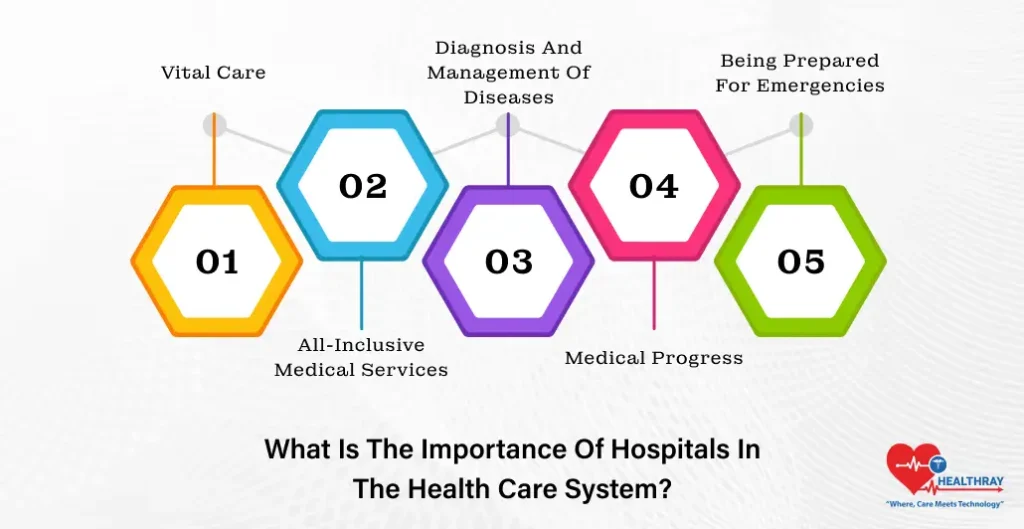
Hospitals provide essential services that have a significant positive contribution to wellbeing and as such are the pillars of population health and the healthcare system:
Vital Care
- They are needed to facilitate the delivery of critical and lifesaving medical treatment.
- For emergencies, such as serious diseases or accidents, hospitals are ready with resources, skilled medical personnel, and facilities that can stabilize and provide essential treatment to the patients.
- An appropriate scheduling and reporting system solve more than half of the problems and contribute to effective care.
- The patients get their exact medication, upgrading instrument quality, and fast accessibility of client documents. Moreover, speedier payment processing with the digitized billing system is possible.
- Whether a patient lives or dies often depends on the proper and timely care received in hospitals.
All-inclusive Medical Services:
- Hospitals offer a comprehensive array of services in various medical disciplines under one roof.
- Bringing together a range of medical services in the hospital setting helps facilitate access to patients for both complex procedures and simple follow-up visits without needing numerous trips to other locations.
Diagnosis and Management of Diseases:
- The diagnosis and treatment of a wide variety of diseases require hospitals. Because of their laboratories, medical professionals, and modern diagnostic tools, hospitals are very good at diagnosing sicknesses.
- With the accurate medical reports, it enhances diagnosis accuracy and improves treatment performance. The hospital environment increases patients’ chances of recovery significantly with prompt medical intervention and early diagnosis.
- Consolidation of patient medical records, making it easier for physicians to access any medical document through in-built filters and helpful for examining patient healthcare details in the graphical dashboard.
Medical Progress:
- Medical research and innovation are some of the prime activities in which hospitals and medical centres are involved.
- They can create new medical therapies, medications, and technology by partnering with academic institutions and research centers.
- Besides benefitting current patients and improving healthcare methodologies, many of these discoveries have a lasting effect on future generations.
Being Prepared for Emergencies:
- They are vital for preparedness in cases of emergency.
- They maintain established processes, resources, and trained staff in order to respond with effectiveness against public health emergencies, natural disasters, and disease outbreaks.
- Hospitals serve as important anchors during disasters, providing supplies, medical care, and support services to affected communities while exemplifying their resilience and commitment to the health of the public.
Besides the emergency department of health care, it affects the local communities and increases the job market. Therefore, it excels the lifestyle of an individual and decreases the unemployment rate in the local economies.
These essential services underpin the crucial role that hospitals play in ensuring timely, comprehensive healthcare delivery for individuals and communities to achieve significantly better health and well-being.
The Future Of Hospital
By now you might define what hospital management software is? Hospitals are about to undergo radical transformation in response to the ever-evolving healthcare environment and technological breakthroughs. This progress is being shaped by several key themes, including the integration of telemedicine, automation, artificial intelligence, and patient-centric design to improve both patient care and efficiency. Let’s see what other facilities will be rendered by hospitals in near future.
Important patterns influencing hospitals’ future:
The use of remote patient monitoring in telemedicine
Telehealth services allow communication with medical specialists from any location due to expanding utilization.
This trend maximises hospital resources while enhancing patient convenience by reducing reliance on in-person visits.
Artificial Intelligence & Automation:
With the aim of increasing productivity and reducing human error, robots are being used in hospitals for mundane activities, drug distribution, and surgical operations.
AI-driven diagnosis and predictive analytics transform Patient care. It helps in early identification of illness and personalized treatment strategies.
Patient-First Architecture:
Healing environments are gaining momentum as top priority for patient well-being and stress reduction in hospitals.
Changes in design serve to enhance patients’ comfort and give them a better experience during their medical trip.
Special Care for the Elderly
The hospitals are changing their services to accommodate treatment and facilities that suit the special needs of the elderly patients due to an aging population.
Medicine and Innovation:
It remains at the leading edge of medical innovation, embracing new technology as one means of continuing to improve patient outcomes and stay abreast of developments.
In a nutshell, these innovations are setting the stage for an efficient, accessible, and compassionate healthcare system. Hospitals, as well as other health facilities, are now more aggressive in utilizing patient-centered approaches with technology to meet the diverse needs of patients better and enhance the overall quality of care.
Are you looking for hospital management software? Learn how HealthRay can help you achieve your goals.
There is no other hospital management program that is both user-friendly and up-to-date except Healthray. Our software has an intuitive interface, putting users’ needs first in order to simplify and optimize the operations of a hospital. Healthray focuses on basic activities like generating invoices, booking appointments, and maintaining patients’ medical files; this way, it guarantees increased productivity without overcomplicating the system as may be the case with other systems.
Key features of hospital management software by Healthray include:
Accessibility and Easy Navigation:
This tool is designed with simple, intuitive interfaces that will allow users to explore the medical tasks it conveys.
Effortlessly handle patient records:
However, the software developed by Healthray makes this complex task of maintaining patient data much easier to comprehend and more convenient for health workers.
Easily manage appointments:
This system improves the overall efficiency of the hospital and makes it easier to schedule and manage appointments.
Invoicing Streamlining Procedures:
Simplified billing procedures present a fast and efficient means for the hospital to handle its finances.
Easy to Use Interface:
It is designed in such a way that health workers will find it simple to carry out their daily activities without having to waste time on complicated software.
Embracing the Future of Hospitals:
Hospitals continue to evolve into better health care outcomes and state-of-the-art medicine. Healthray is at the forefront, providing creative software solutions in ways that will make it easy for users to adapt to changing needs within the healthcare industry.
Conclusion
Hospitals are truly indispensable, to say the least. One hospital can have a lot of departments that treat emergency services, operations, and special treatments, among others. In the future, hospitals will result in summoning technology, research, and professionals to work together for patient care improvement. The intuitive solutions by Healthray are taking our healthcare systems further by ensuring one gets good treatment during sickness or emergency from an appropriate department. It is possible that in the future, more improvements in medicine will occur, though healthcare outcomes have been improving.
